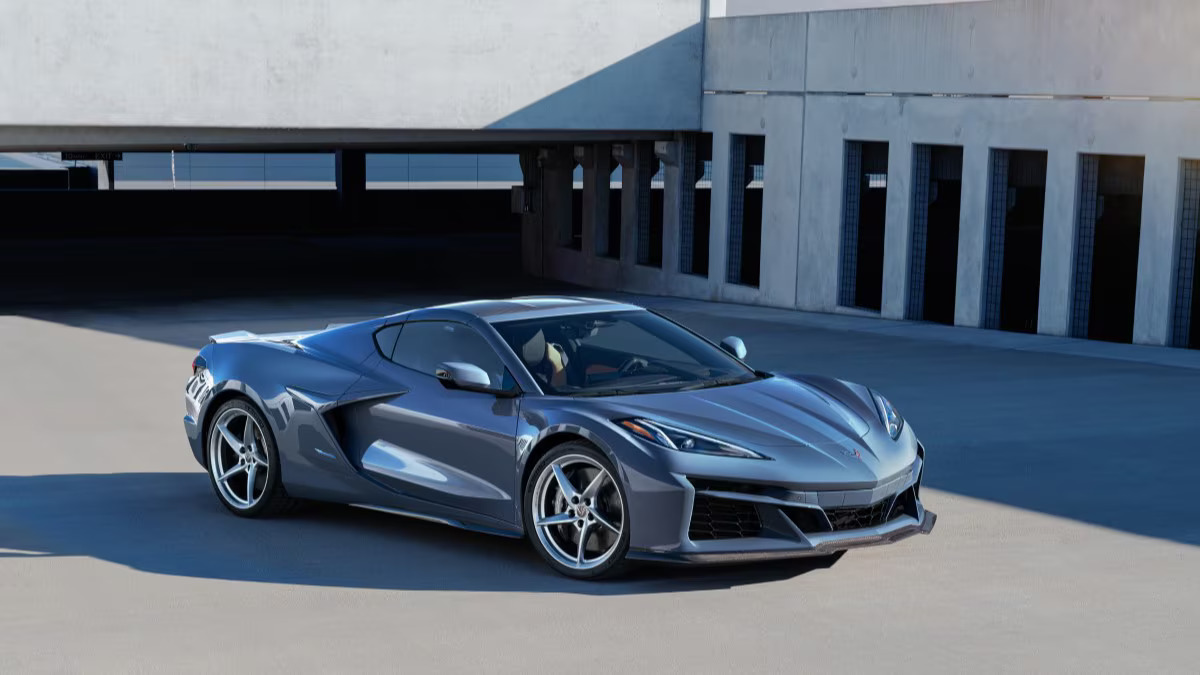Buying your first sports car is an exhilarating experience, offering the promise of unmatched driving excitement and the joy of owning a sleek, high-performance vehicle. The idea of cruising in a car that delivers both speed and style is a dream come true for many. However, the process of purchasing such a car can feel overwhelming, especially for first-time buyers. With numerous options, varying prices, and performance specs to consider, it can be difficult to know where to start.
The sports car market is unique, with a variety of models catering to different needs, preferences, and budgets. While the experience of owning a sports car is thrilling, the path to purchasing one can be full of uncertainties. To help simplify this journey, we’ve compiled a list of essential tips to guide you through the process, ensuring you find the perfect vehicle for your lifestyle and budget.
Go For A Long Test Drive
When you’ve found a car that interests you, it’s crucial to take it for a long test drive. A brief drive around the block won’t give you a true sense of how the car performs on the road. Instead, aim for a test drive lasting at least 20 to 30 minutes, which will allow you to get a feel for the car’s handling, comfort, and overall driving experience.
During the test drive, pay attention to the car’s steering, braking, and acceleration at various speeds. Listen for any unusual noises and take note of how the car handles different road types. This longer test drive will help you assess whether the car is a good fit for your driving needs.
Shop For The Best Interest Rate
If you’re financing your sports car purchase, one of the most important steps is shopping for the best interest rate. Start by checking with your personal bank, as they may offer more favorable terms. Credit unions are also a good option, as they tend to provide lower rates compared to traditional banks.

It’s essential to compare rates from different lenders before finalizing your decision. Even a small difference in interest rates can add up over the life of the loan, so finding the best deal can save you significant money in the long run.
Focus On The Out-The-Door Price
When negotiating with a dealership, always focus on the “out-the-door” price, which includes the total cost of the vehicle along with taxes, fees, and additional charges. Dealerships may initially quote a lower price, but it’s important to clarify the full cost before committing to the purchase.
Be firm about your budget and don’t be afraid to walk away if the dealer can’t meet your price. Focusing on the out-the-door price rather than the advertised price ensures that you have a complete understanding of the total cost, which can prevent unexpected expenses from arising later in the process.
Choose Between Performance And Aesthetics
When buying a sports car, you must decide whether you prioritize raw performance or stylish looks. If performance is your primary concern, look for cars with more powerful engines, like V8 or twin-turbo V6 options. These engines deliver the speed and acceleration that sports car enthusiasts crave, but they often come with a higher price tag.
On the other hand, if your focus is on the car’s appearance and you’re okay with less raw power, there are plenty of options that offer sporty looks without the high-performance engine. Cars like the Ford Mustang or Dodge Charger with a V6 engine can still provide an attractive, sporty aesthetic. Ultimately, it’s important to balance performance and aesthetics based on your personal preferences and driving goals.
Be Patient With The Process
Lastly, be patient with the process. Buying a sports car is an exciting but often time-consuming experience. Whether you’re purchasing from a dealership or a private seller, there may be delays with paperwork, inspections, or finalizing the deal. Patience is key, and it’s important to stay calm and take your time to ensure everything is in order.
While the process may seem lengthy at times, it will all be worth it when you finally drive away in your new sports car. With patience and careful attention to detail, you’ll be well on your way to enjoying the thrills of owning your first sports car.
Get A Vehicle History Report And A Pre-Purchase Inspection
If you’re considering a used sports car, it’s crucial to protect yourself by getting a vehicle history report and a pre-purchase inspection. A pre-purchase inspection, performed by a trusted mechanic, can reveal hidden issues that might not be immediately apparent. This step can help prevent costly repairs in the future, and while it may cost between $150 and $200, it’s a small price to pay for peace of mind.
In addition to the inspection, a vehicle history report from services like CarFax or AutoCheck provides valuable information about the car’s past, such as accident history and maintenance records. Keep in mind that these reports may not capture every detail, but they provide a useful starting point for assessing the car’s overall condition.
Do Research And Set A Budget
Before you even step onto a dealership lot or browse online ads, conducting thorough research is essential. The more informed you are, the better your chances of finding the right car at the right price. Start by identifying the types of sports cars that appeal to you and match your preferences. Read reviews from trusted sources, like Top Speed or Hot Cars, to understand each car’s features, performance, and price range.
Once you have a list of potential vehicles, set a realistic budget. Sports cars come in a wide range of prices, and it’s easy to get caught up in the excitement and overestimate what you can afford. Be sure to factor in not only the cost of the car but also additional expenses like taxes, insurance, and maintenance. Narrow your options based on your budget, and check market prices on sites like Kelley Blue Book and Edmunds to get an idea of fair prices.
Choose Which Body Style: Coupe or Convertible
As you narrow down your options, one of the first major decisions to make is whether you want a coupe or a convertible. Both body styles offer unique benefits, so consider which one suits your needs. Coupes are generally known for their better handling, more cargo space, and greater structural integrity. If you need a practical vehicle with extra seating or space, a coupe like the Ford Mustang might be a good choice.

If you’re seeking an open-air driving experience and the thrill of cruising with the wind in your hair, a convertible might be more appealing. However, convertibles tend to have less storage space and can sometimes offer a less rigid body structure. For those who want the best of both worlds, hardtop convertibles like the Mazda Miata RF or BMW Z4 provide a solid roof when needed but can still deliver the excitement of a convertible experience.
Decide If It Is A Weekend Warrior Or Daily Driver
Another crucial factor is determining whether your sports car will be a daily driver or something you only take out for weekend fun. If you plan to drive the car regularly, you should prioritize practicality alongside performance. Options like the Honda Civic Type R or Subaru WRX offer thrilling driving experiences but are also suitable for daily use with their better fuel efficiency and more comfortable interiors.
For those who plan to use the car only occasionally, a less practical, more exhilarating vehicle might be a better fit. Weekend warriors don’t need to worry as much about comfort or practicality, and this opens up options for cars that prioritize performance over everyday usability, such as the Porsche 911 or a classic Nissan 350Z.
Paying Cash May Not Be The Best Way
While paying cash for a sports car may seem like the most straightforward option, it’s not always the best approach when dealing with dealerships. Dealerships often make more money through financing deals, so they might be more willing to offer a better deal if you choose to finance your purchase instead of paying in full.
That said, it’s important to avoid discussing financing options too early in the process. Focus on negotiating the price first, and only bring up the financing details after you’ve settled on the cost. If you still prefer paying in cash, you can mention this later in the process, which may give you a better chance of securing a good deal.

